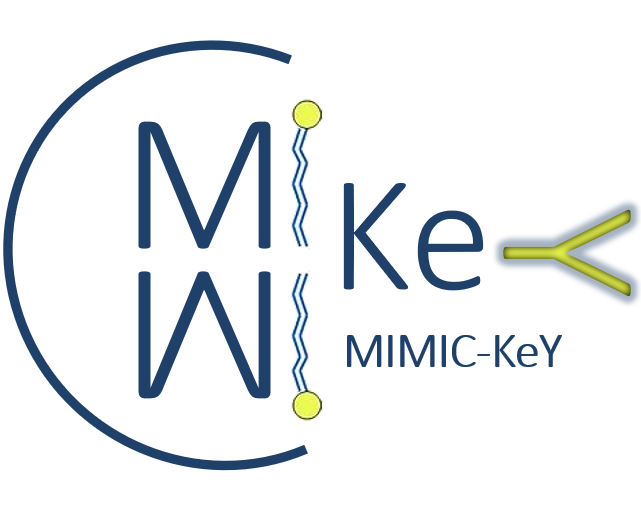
Ibane Abasolo Oloartua, PhD
Principal Investigator
Head of the Drug Delivery and Targeting (DDT) group at Vall d’Hebron Institute of Research (VHIR) and the Functional Validation & Preclinical Research (FVPR)/U20 service platform at Nanbiosis ICTS.
Research interests of Dr. Abasolo include the development of improved treatments for cancer and lysosomal storage disorders (LSDs), through the use of new nanotechnology platforms and state of the art in vitro and in vivo models. Over the last 15 years, Dr. Abasolo has contributed to the preclinical development of more than 30 therapeutic nanosystems in the fields of oncology and systemic diseases, while keeping basic research lines in their pathophysiology. Currently, she is participating in 2 European projects (SafeNMT -GA 814607- and MIMIC-KEY) and 2 national projects (Nex-TRY -P21/0936-, centered in LSDs and NanoDireCT -RTC2019-006809-1-, developing novel therapeutics and diagnostics strategies based on nanobodies).
Role in the project: As PI at VHIR, Dr. Abasolo will coordinate and supervise the activities and tasks assigned to VHIR and will take care of the design of the experiments involving the preclinical validation of EV-mimics. In detail, these activities will evaluate the in vitro performance of targeted EVs and EV-mimics loaded with CTSK, as well as their in vivo biodistribution, safety and efficacy in the animal model for pycnodysostosis. Furthermore, Dr. Abasolo is responsible of dissemination and reporting activities at VHIR, and implementation of the ethics.

Joaquim Seras Franzoso, PhD
Post Doc
Dr. Joaquim Seras-Franzoso obtained his PhD in Biotechnology in 2012. Since then, his research has been focused on the study of protein nanoparticles for biomedical applications and lately in the role of extracellular vesicles in the intracellular communication. Dr. Seras has a broad expertise in recombinant protein production and in vitro validation assays. He has also strong experience in expression of recombinant proteins in extracellular vesicles (EVs) for enzyme replacement therapies of rare lysosomal storage diseases.
Role in the project: Dr. Seras will be involved in the design of expression vectors and cell production of recombinant proteins as well as in the production of modified EVs.

Vanessa Diaz-Riascos, PhD
Post Doc
Vanessa obtained her PhD Biology in 2014 working on the role of microRNAs in pancreatic cancer progression, using patient derived xenografts (PDX) as a model. She is responsible of all animal experimentation developed at the DDT group, including assay design, animal handling and data management. Besides, she has strong expertise in management of animal models of lysosomal diseases, thanks to her previous participation in the Smart4Fabry EU project.
Role in the project: Dr Díaz-Riascos will be involved in all in vivo experimentation required in MIMIC-KEY, form the establishment of the in vivo pycnodysostosis model at VHIR, its morphological and phenotypical characterization, and the final safety/efficacy assays of EV-mimics.

Fernanda da Silva Andrade, PhD
Post Doc
Dr. Andrade obtained her PhD in Pharmacology in 2011. As a post-doc, she has been involved in the development of different types of nanosystems for metabolic diseases (diabetes and Fabry disease –a lysosomal storage disorder) and cancer.
Role in the project: Dr. Andrade will be responsible of the structural and molecular characterization of EVs and synthetic nanoparticles developed within the project to later correlate these features with the in vivo behaviour of the EVs and EV-mimics.

Marc Moltò Abad
PhD student
Currently working on his PhD, he has previously worked on monitoring different clinical trials at Vall d’Hebron’s unit of Metabolic diseases. In this PhD, he is focusing on the use of different drug delivery system (including liposomes and extracellular vesicles) for lysosomal storage disorders, so his own project is closely related to Mimic-Key.
Role in the project: He will give support to the work developed by Dr. Díaz-Riascos and Dr. Andrade.

Diego Baranda Martínez-Abascal
PhD student
Currently working on his PhD, specifically in the use of EVs as vehicles for therapeutic proteins. Although thesis project is mainly focused on improving the treatment pancreatic cancer, he is also collaborating in projects where natural and artificial EVs can be used to improve the enzyme replacement of LSDs.
Role in the project: he will give support to the work developed by Dr. Seras-Franzoso in the obtention and characterization of CTSK-loaded and bone-targeted EVs.

Roberto Vélez, PhD
Dr. Roberto Vélez is an orthopaedic surgeon and head of the Musculoskeletal Tissue Engineering Research group at VHIR. Apart from his background as a surgeon, he has strong expertise in analysing bone samples with biomechanical testing, micro-CT analysis, qualitative confocal microscopic analysis, backscattered electron microscopic and histology analysis. His work also includes extensive research in bone regeneration stimulation with stem cell-based tissue engineered products and green fluorescent tracers.
Role in the project: Dr. Vélez will be involved in in vivo studies of EVs and in the phenotypic characterization of the pycnodysostosis model and the morphological changes produced by the treatment with CTSK-loaded nanosystems.

